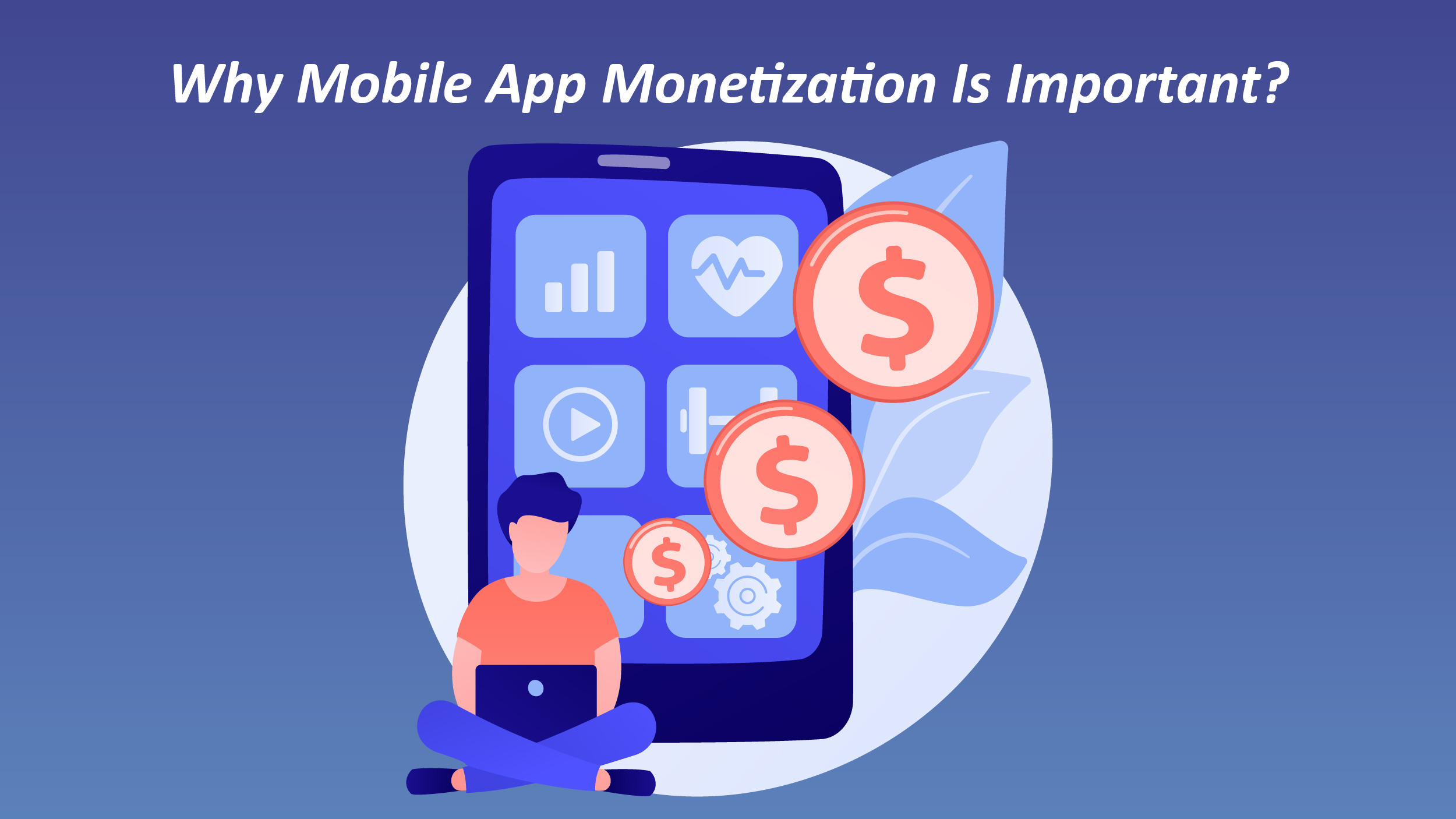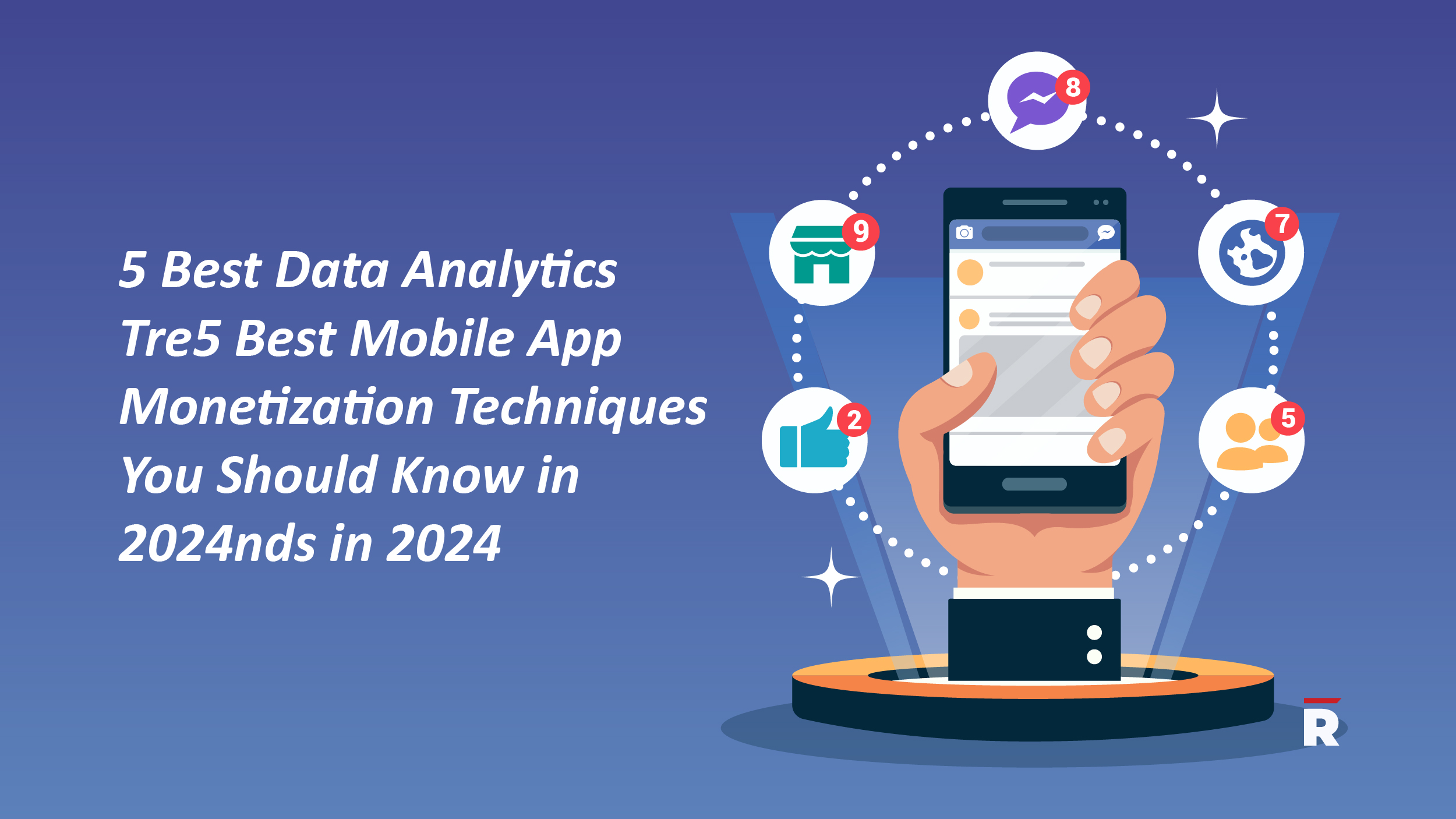Surviving in the app development landscape can be daunting, especially without substantial external funding. In 2023, the global app download count reached 299 billion annually, marking a notable increase from around 247 billion app downloads worldwide in 2020. In such a fiercely competitive environment, staying afloat requires app developers and publishers to remain abreast of the latest mobile app monetization methods. Keeping pace with these evolving strategies is crucial for their sustainability in the dynamic app market. This blog will precisely delve into this topic.
What is Mobile App Monetization?
Mobile app monetization involves generating revenue from a mobile application without requiring users to pay to download the app. The proliferation of free apps in app stores has compelled developers to explore diverse strategies for income generation, ensuring the sustainability of their businesses.
The surge in free mobile apps within the digital ecosystem has led to growing user resistance toward paying for applications, whether they are for gaming or news.
In response, app developers are exploring diverse monetization strategies. Several methods leverage a user base to generate revenue from a mobile app, including in-app advertising, in-app purchases, the freemium model, and more.
Determining the most effective monetization methods relies on various factors.
Why Mobile App Monetization Is Important?

Over the past 15 years, the number of free apps available through app stores has increased exponentially, making mobile app monetization a crucial factor for app owners all over the world.
Also Read : Are 3D Printing Medical Devices as Safe and Effective as Traditional Ones?
According to Statista, a whopping 255 billion mobile applications were downloaded in 2022, while just 3% of apps were paid for globally as of January 2023. Even though free apps are widely available, the mobile app market is expected to grow to a staggering $935.2 billion by 2023.
The transition to free apps has prompted app developers to completely rethink how they make revenue out of their apps.
App developers can utilize one of the following app monetization models to make sure their app keeps making money while offering a great user experience. They can also use a hybrid app monetization strategy, which combines two or more revenue-generating strategies.
5 Best Mobile App Monetization Strategies in 2024

Below are the top five mobile app monetization strategies to look out for in 2024.
In-App Advertising
Integrating ads within the app’s interface is a popular monetization strategy. Developers can partner with ad networks or use ad mediation platforms to display relevant ads to users. Different types of ads, such as banner ads, interstitial ads, native ads, and video ads, can be utilized to generate revenue. The in-app advertising revenue model stands as one of the most popular app monetization strategies, and its momentum appears unabated. Predictions indicate that revenues derived from in-app ads are poised to nearly triple by 2025, reaching an estimated $226 billion.
In-App Purchases
It offers users the option to make purchases within the app for additional features, content, or benefits in this effective monetization strategy. In-app purchases can be categorized into one-time purchases or consumables and non-consumables. This strategy is particularly successful for gaming apps, where users can buy virtual goods or upgrades. A survey revealed that among developers, in-app purchases ranked as the second most effective monetization strategy, coming second only to rewarded videos.
Subscription Model
The subscription model is gaining popularity, especially in content-based apps. Users pay a recurring fee to access premium content or enhanced functionality. Regular updates and fresh content are crucial to retaining subscribers and attracting new ones.
Freemium Model
The freemium model allows users to download the app for free but offers additional premium features or content through in-app purchases. This approach attracts a larger user base and converts a portion of those users into paying customers. Careful consideration of which features to offer for free and which to reserve for premium access is essential.
Spotify, originating in Sweden in 2006, is an excellent example of the freemium app subscription model. As an alternative to iTunes’ pay-per-song approach and the prevalence of illegal music downloads, Spotify offers many premium features to free users. Users can unlock additional benefits, including an ad-free version, through a monthly subscription. Remarkably, Spotify achieves a high conversion rate, with 24% of free users transitioning to paying subscribers, surpassing the average conversion rates of most freemium apps, typically ranging from 2-5%.
Data Monetization
Leveraging user data to generate revenue is another strategy. Developers can anonymize and aggregate user data to provide valuable insights to advertisers, researchers, or third-party platforms. Privacy regulations and ethical practices must be followed to maintain user trust and protect privacy
How to Choose the Right Mobile App Monetization Model?
When determining the most suitable app monetization strategy, app owners must consider various factors in the realm of digital marketing. Often, developers opt to employ a combination of different approaches to generate app revenue. However, with advertisers investing over $600 billion in digital advertising in 2022, it’s evident that in-app advertising remains one of the most effective and profitable monetization models for apps.
Winding Up
When delving into the realm of app monetization, various factors demand thoughtful consideration.
Firstly, reflect on the below questions
- Identify the distinct features that set your app apart.
- Reflect on your readiness to pay for the app and determine a reasonable price.
- Clarify your existing business.
Mobile app monetization plays a crucial role in the success and sustainability of app development businesses. With the ever-growing number of mobile apps available in the market, developers need to employ effective strategies to generate revenue and maximize profitability.






